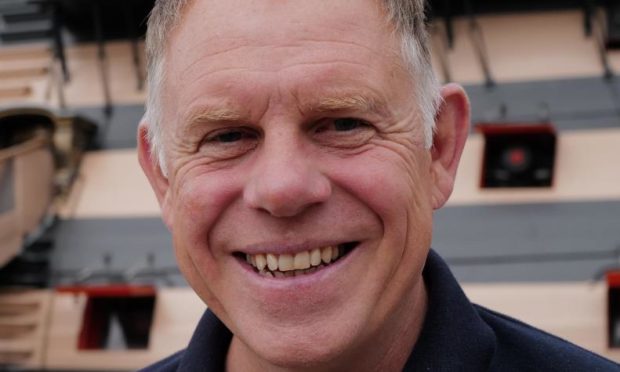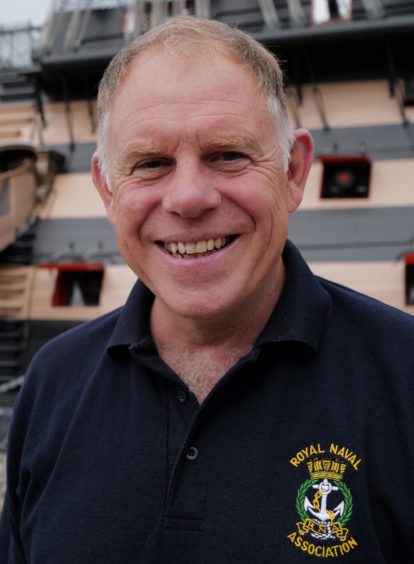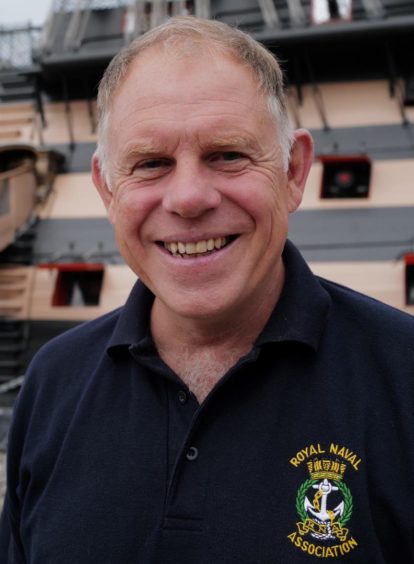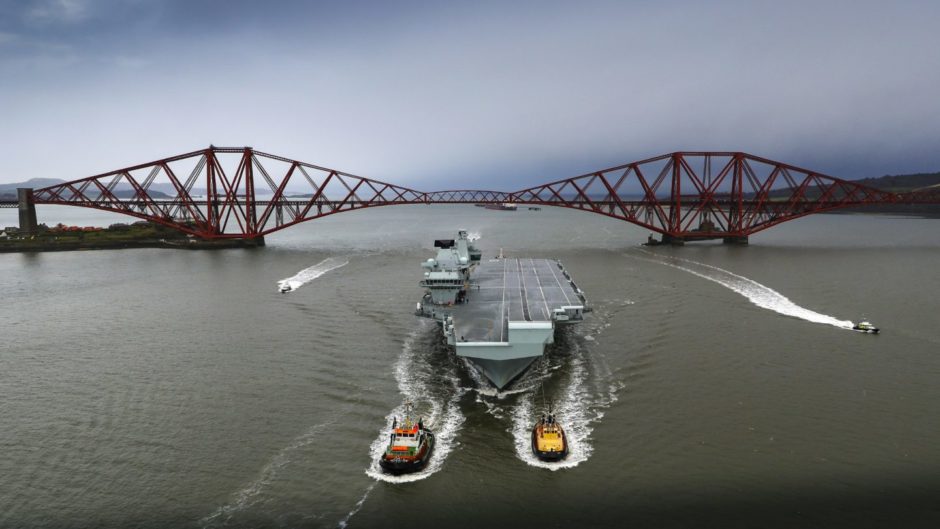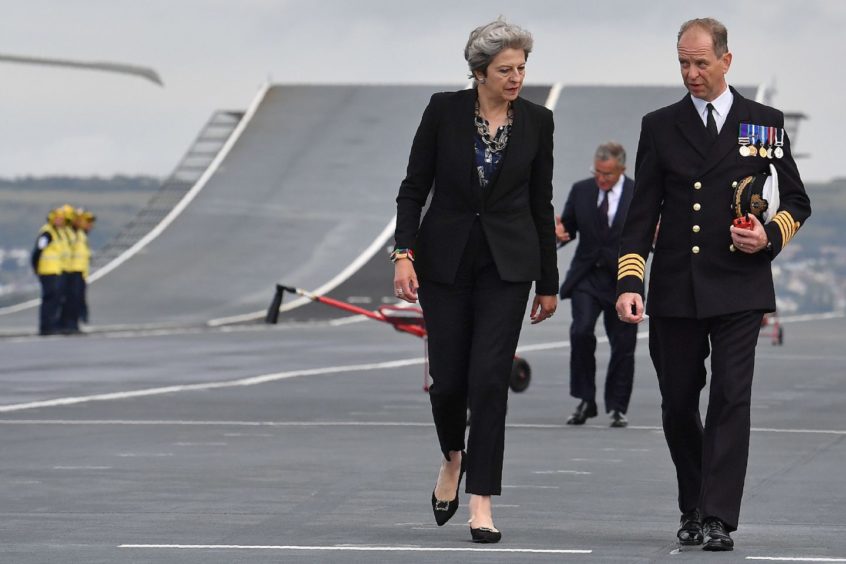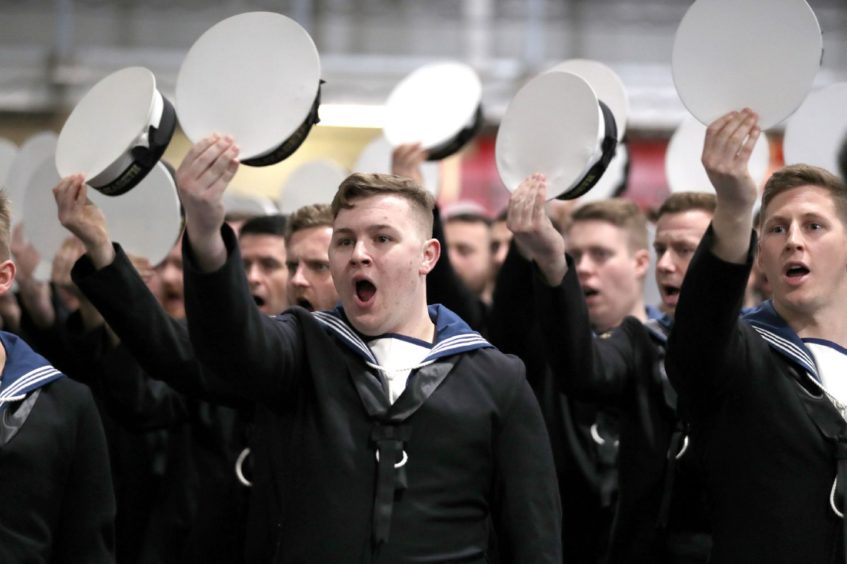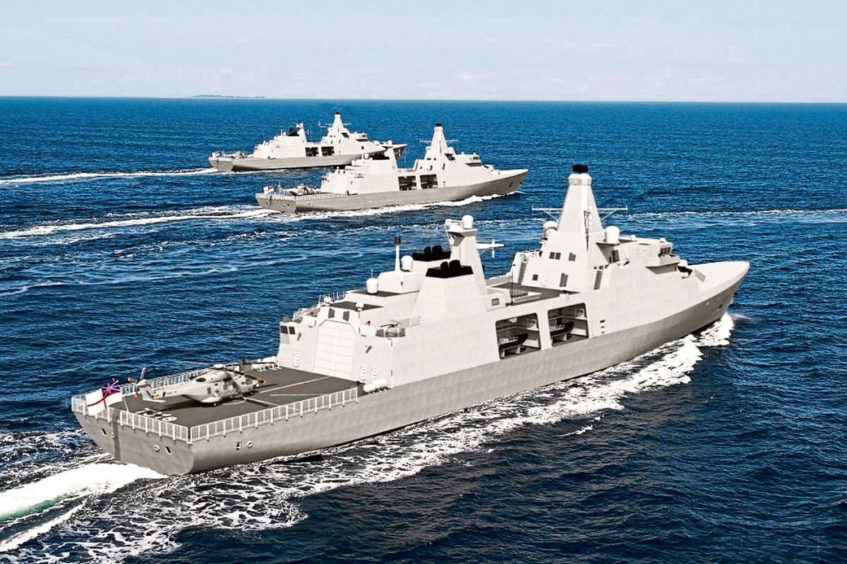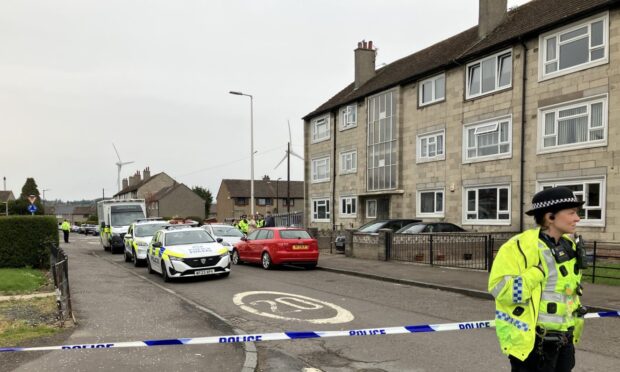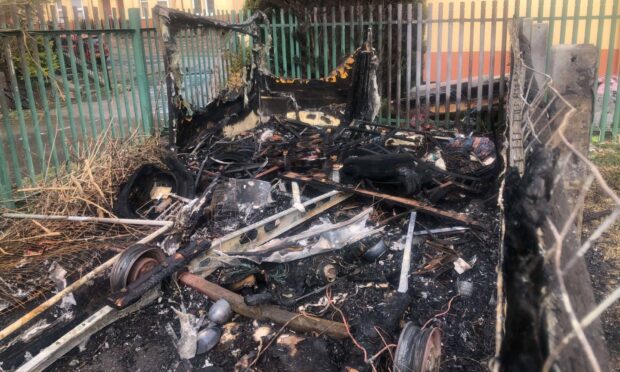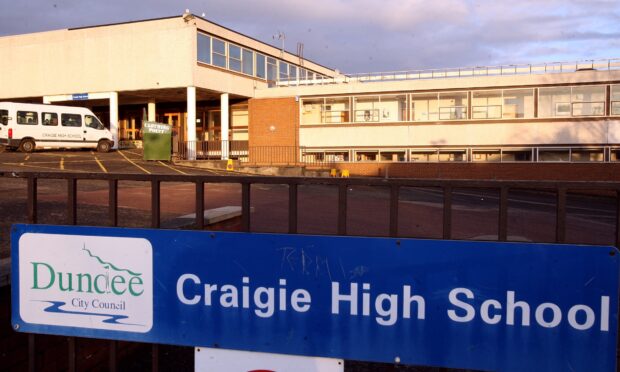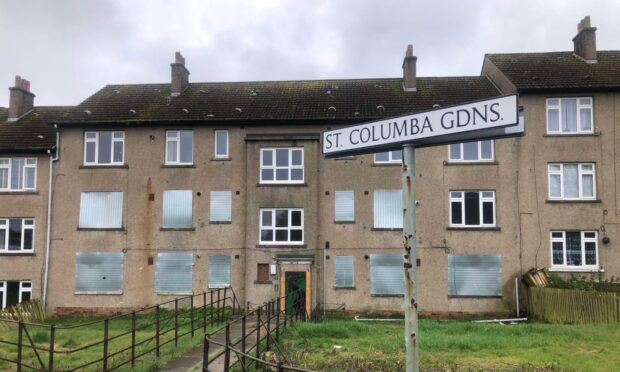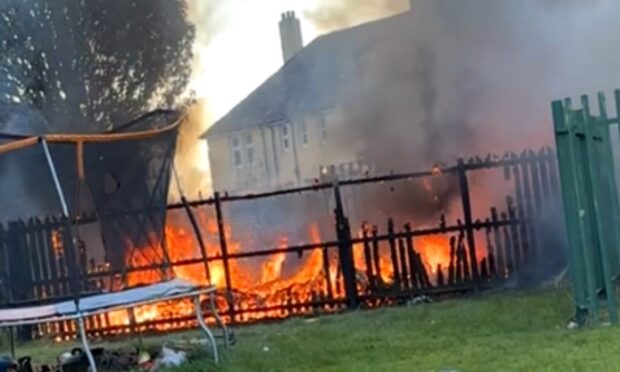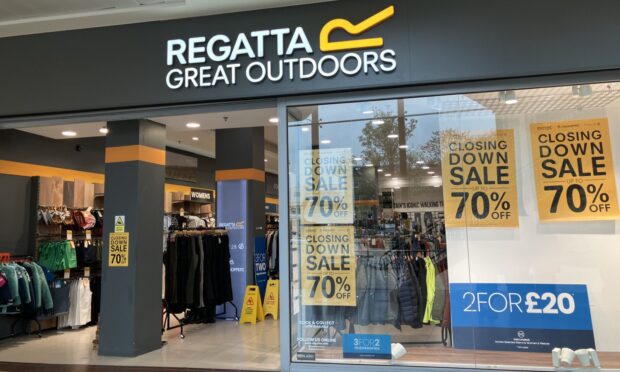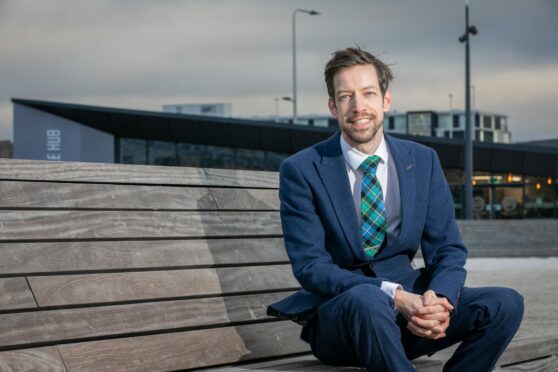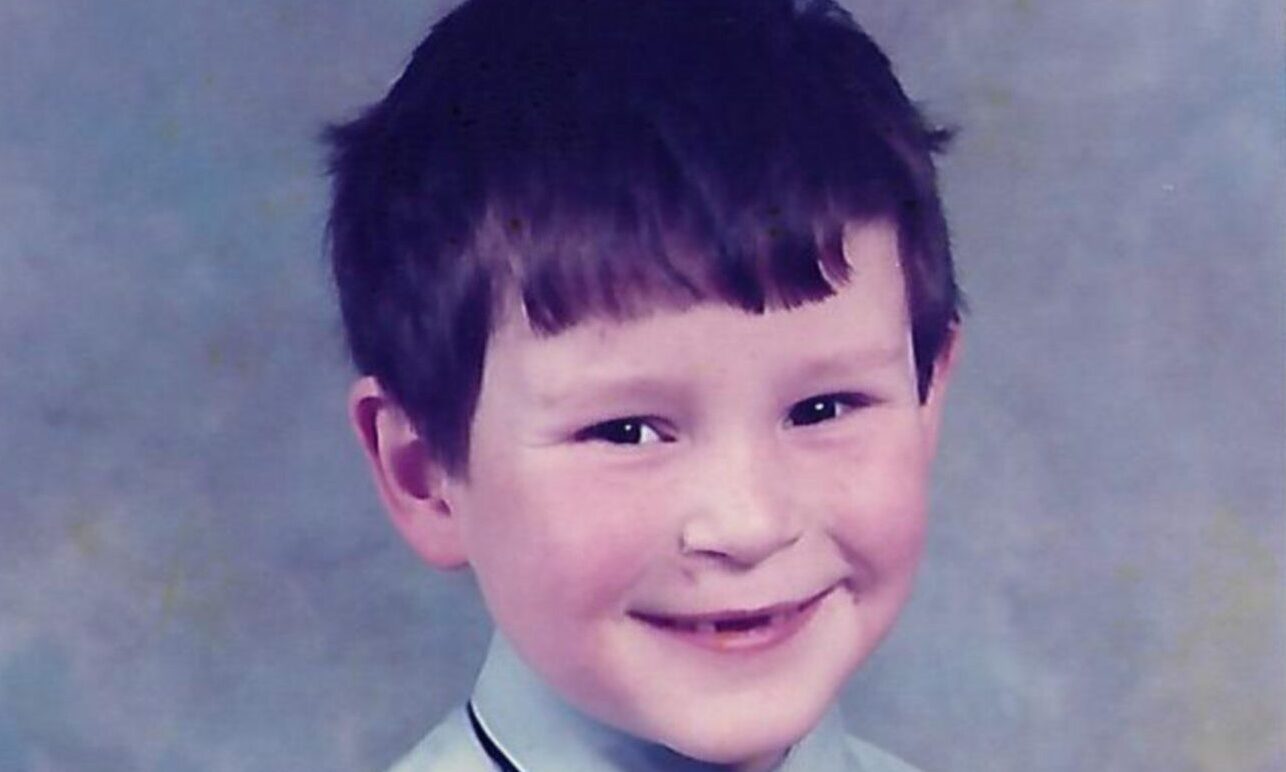As the Royal Naval Association holds a drop in event in Dundee, Michael Alexander speaks to its Fife-raised CEO Captain Bill Oliphant about his 36 year naval career which ended as captain of HM Royal Naval Base in Portsmouth.
When Royal Naval Association CEO, Captain Bill Oliphant, talks about the 36 years he spent in the Royal Navy, it quickly becomes clear that he was “born in St Andrews, and made in the Royal Navy”.
But while the 57-year-old laughs at the clichéd misquote of the well-known “born in Carlisle” Royal Navy TV recruitment campaign, he’s in no doubt that the opportunities available for young people entering the service today still make it “an incredibly exciting career”.
Bill, whose final job before retirement was as Captain of Her Majesty’s Royal Naval Base in Portsmouth, will be in Dundee on June 12 for a ‘drop in’ event being held by the Royal Naval Association at Dundee Sea Cadet Unit.
All Royal Navy veterans, serving personnel and families, and anyone interested, are invited to come along and connect with the military community.
Teenage recruit
For Bill, who grew up in landlocked Glenrothes, however, his trip north from Portsmouth has also brought back memories of being signed up as a teenager in 1982 at Dundee’s then Royal Navy recruitment office.
“I didn’t really know what I wanted to do when I was coming towards the end of school. I kind of assumed it would be engineering or an apprenticeship or something like that,” says the former pupil of Auchmuty High School, Glenrothes, who was born at the former Craigtoun Maternity Hospital outside St Andrews.
“I actually went for an interview for a local company in Glenrothes about an apprenticeship when I was about 17 and they asked a question I’d never asked myself before, and that was, ‘if you could do any type of engineering at all, what would that be?’
“I thought about it and thought I’d quite like to do aircraft engineering. Of course, they didn’t do aircraft engineering – they did mining equipment or something back then.
“I didn’t get the job. But it opened my eyes and helped me. I thought if I’m going to do aircraft engineering I either need to join one of these big commercial companies or think about the forces. That’s where I started to look at it.”
Hairy old chief
After passing various tests and interviews, Bill was told there were no aircraft engineering vacancies with the Army or RAF.
So he visited the Royal Navy recruitment office in Dundee.
Bill laughs when he recalls how “a hairy old chief put his arm around me and said ‘in you come son! There’s stacks of places here for aircraft apprentices!’”
Just six weeks later, after more tests, a medical and interview, he found himself on a train to the south of England. His naval adventure had begun!
“It was 1982 – the Falklands had happened that year – and I must admit that was an influence. It looked pretty exciting to say the least,” says Bill.
“I remember getting on the train at Kirkcaldy and my mum dropping me off. I’m thinking ‘what on earth am I doing?’
“But after the long train journey down there and getting off and just starting, I realised on day two/three this was the right thing for me.
“I remember saying to my mum ‘it’s a bit like Scout camp but you get paid for it as well!”
‘Shaped’ by Scout camps in Angus
An only child, Bill says his experiences of going on camps to the Jock Neish Scouting Centre at Tannadice, near Forfar, with the 50th Fife Scout group in Glenrothes, certainly “shaped him” in terms of resourcefulness and “being surrounded by mates” –like in the navy.
Starting as an apprentice artificer, his weekly pay in those days was £57.68. “I thought I was loaded!” he laughs.
To misquote another navy recruitment campaign, he literally saw the world after joining up.
“Funnily enough every time I got on a ship it seemed to turn left at Gibraltar,” he smiles.
“I spent a lot of time in the Mediterranean during my career on various ships – HMS Fearless, HMS Edinburgh, HMS Glasgow, HMS Intrepid then later on HMS Grafton, HMS Bulwark – I think all of those ships spent at least some time in the Mediterranean.
“Then of course as my career developed, I found myself more involved in the joint environment – shore-based but still deploying.
“I was in the joint force headquarters when 9/11 happened. I was deployed to the initial planning phase of getting the Taliban out of Afghanistan in 2001.
“I was also involved in the planning and execution of the second Gulf War in 2003.
“Then I went to Afghanistan on a tour for six months as chief of staff of the logistic component HQ out there in 2007/08.
“So it wasn’t just sunshine and nice ports to visit – there was a wee bit of the rough stuff as well in places that weren’t quite so secure as you can imagine. It was hugely interesting.”
Promoted to captain
When Bill was promoted to captain, he had a tour in Naples, Italy, with Nato HQ.
He was then asked to come back to be captain of the base at Portsmouth in time to do the final preparations for the arrival of the £3 billion Queen Elizabeth aircraft carrier in August 2017.
Bill feels “very proud” to have been part of the Queen Elizabeth story.
Having been put together at Rosyth in Fife, it was a special moment when, after 20 years of “talking, planning, building, training and goodness knows what”, the carrier finally arrived at Portsmouth.
“We’d never had anything in Portsmouth the size of the Queen Elizabeth,” says Bill.
“Even the very biggest of the Second World War battleships were two thirds of the displacement of the Queen Elizabeth.
“A lot of the work that went on down there was invisible. We were cutting deeper, wider channels to get the ship in. We were strengthening the jetty to take this weight.
“We were building new gangways and jetties. We had to get a new tug which was powerful enough to keep it safe coming through the harbour entrance.
“It was a big task and great to be part of that.”
Bill laughs when he recalls a “funny story” that happened on the day the carrier arrived.
The then Prime Minister Theresa May was visiting, and as Bill and the First Sea Lord waited for her, they couldn’t get the TV to work because “someone had parked a 65,000 tonne aircraft carrier in the way of the aerial!”
“We had a laugh about this – I said, ‘look sir, if that’s the only thing that goes wrong today I can live with that!’”
Embodiment of Global Britain?
Military recruitment issues and government defence spending reviews are never far from the news. Critics have condemned the overall £6.4 billion aircraft carrier budget costs and questioned their embodiment of “Global Britain”.
But just weeks after the Queen Elizabeth joined a post-Brexit task force sailing for the Far East, Bill says the Royal Navy still has a vital role to play on the world stage and is adamant that huge opportunities for a “great career” remain.
“I don’t think it would be too political for me to suggest the biggest threat to the country at the moment is probably finance in terms of getting over what the country has had to spend in terms of the recovery from Covid,” he says.
“That’s always a threat, that’s for sure – hopefully that won’t impinge too much on the defence budget. But the world is actually quite an unstable place out there at the minute.
“So without being too political about this, I think it would be foolhardy of any government – not just the current government – to suggest that they should draw back on their defence budget too much.
“And I would especially say that in terms of the Royal Navy, because our sea lines of communication will be more important to us than ever if we are going further afield in the future, away from Europe, to trade. This carrier task group going to the Far East this year is hugely significant.
“Also, when the aircraft carrier is going through the Mediterranean, if something were to kick off in Libya or Syria, that’s literally when Boris is on the phone to his pal in the White House to say ‘look I’ve got a carrier in position at the moment’.
“It’s that sort of level of contribution that the UK is able to make on the world stage now with the sort of capability that we’ve got.
“The great advantage we’ve got of doing it from the carrier is not having to negotiate with a third power for access for basing for jets and things like that.
“That’s kind of where we are and the contribution we do make. Don’t forget we’re still a permanent member of the UN Security Council. We do have responsibilities – albeit we are a small nation – around the globe.”
• The Royal Naval Association in Scotland ‘drop in’ event takes place at Dundee Sea Cadet Unit, East Camperdown Street, Dundee, from 1pm to 4pm on Saturday June 12, 2021.
